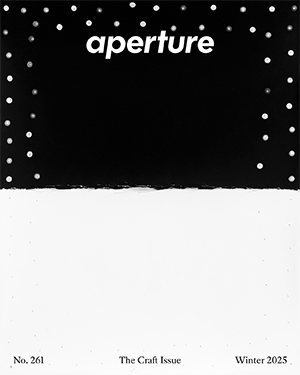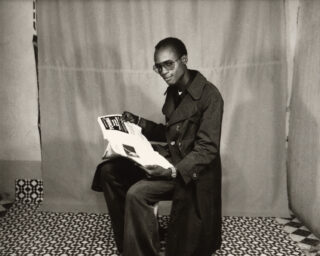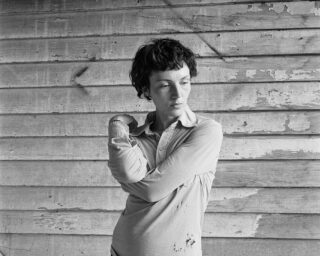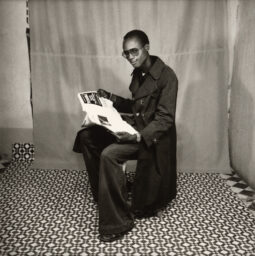How a Young Chinese Photographer Subverts Traditional Gender Roles
Ziyu Wang’s playful portraits parody the social expectations of masculinity and what a “man” should look like.
Ziyu Wang, Official Background, 2021
Ziyu Wang grew up in Xinyang in a traditional Chinese family, meaning that he was constantly aware of the gendered expectations that his parents have for him. “My father had hoped I would become a government official, because in his eyes, this was a symbol of masculine power,” Wang says. “As a result, I took a photo of myself wearing a suit against a blue background, as in China, all government officials have ID photos with this backdrop.” But what might it mean for Wang, who is queer and now lives and works in London and Shanghai, to upend these expectations, and to challenge himself and others through photography?
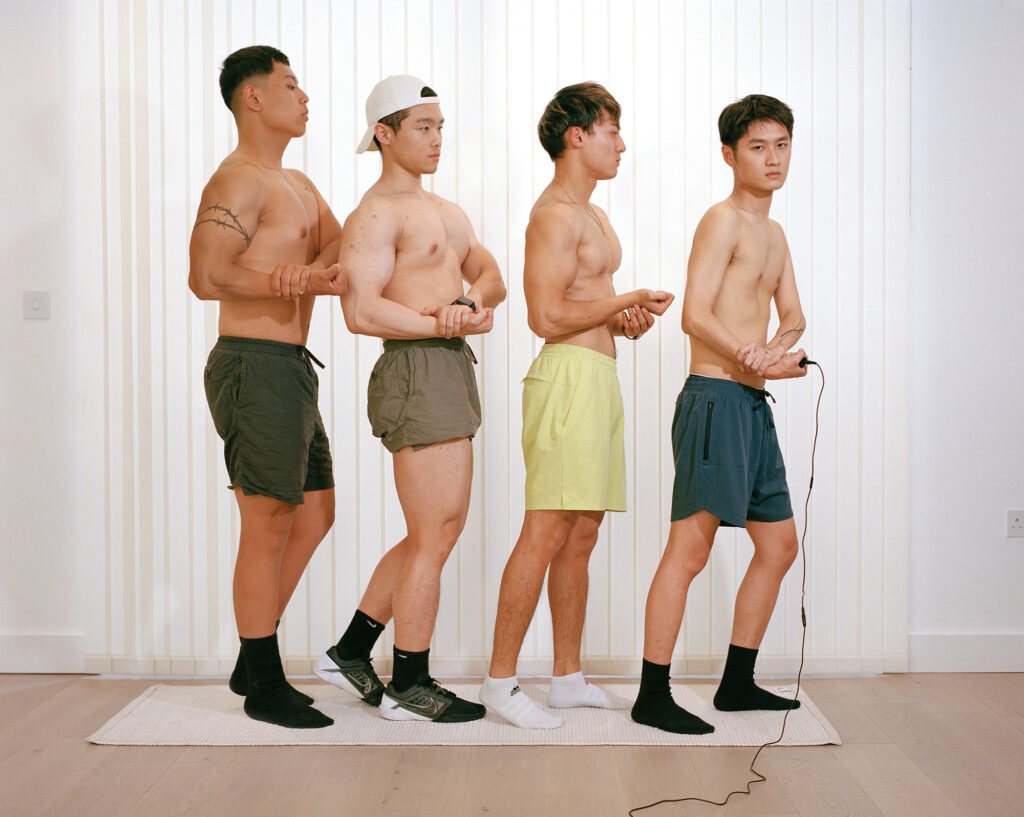
In his playful self-portrait series Go Get ’Em Boy (2021–22), Wang performs traditionally masculine archetypes in front of the camera, embodying different characters to point out the often absurd assumptions of traditional gender performance, in China and elsewhere. The reflexive nature of self-portraiture allows Wang to explore these themes and remain authentic to his own life. Informed by gender theorists such as Judith Butler, whose germinal writing in the 1990s framed gender as a form of performance, Wang inflects ideas of “gender parody” into the context of Asian men, subverting stereotypical ideas to capture gay, Asian men in the role of “alpha” males. In Lads (2022), Wang poses in a line with other Asian men, all shirtless, flexing, ordered from largest to smallest physique. It’s a striking image that, on one hand, cleverly confronts stereotypes of Asian masculinity as it relates to the body while, on the other, questioning the viewer’s expectations of what a “man” should look like.
While Wang employs a supporting cast of characters, the focus in Go Get ’Em Boy remains on how he himself can personify these masculine archetypes. “I believe that using myself as the subject allows me to create a deeper connection with the viewer, as they are able to see me, my body, and my emotions in a way that they might not be able to with an image of someone else,” he notes.
Wang’s photographic influences include Hans Eijkelboom’s With My Family (1978), a series wherein the Dutch photographer took self-portraits with real families, interloping as a fake father figure. “What I love about this series is Eijkelboom’s ability to subtly shift identities and insert humor into a familial context,” Wang says. He also cites Yushi Li’s self-portraiture work as a touchstone of photography that deals with tangential ideas of gender and race, using a similar approach.

Wang approaches image-making with levity and wit. “Humor and playfulness are key to making conversations about masculinity and gender identity more inclusive,” he says, which “allows for detachment and questioning, connects with audiences, and creates a more accessible and relatable experience.” However, the pleasure of viewing Wang’s parodies of masculinity (for example, being held in a pose of extraordinary athleticism by two conspirators in morph suits), belies the use of humor as a critical device. “I had been pretending to be heterosexual in my parent’s presence,” Wang says. “It struck me as absurd.”
While Go Get ’Em Boy is foremost a playful refraction of his own lived experiences, Wang is aware of the broader ideas communicated by his work. “Many young Chinese people are often pressured to conform to cultural and societal expectations surrounding gender, sexuality, and identity,” remarks Wang, who has come across similar experiences of familial prejudice in conversations with his queer, Chinese friends in London. This experience of having to live a double life—being able to be openly queer in London, but not China—is something he wants to explore in a future body of work. “Overall, I want to bring attention to the struggles faced by the queer, Chinese community.”
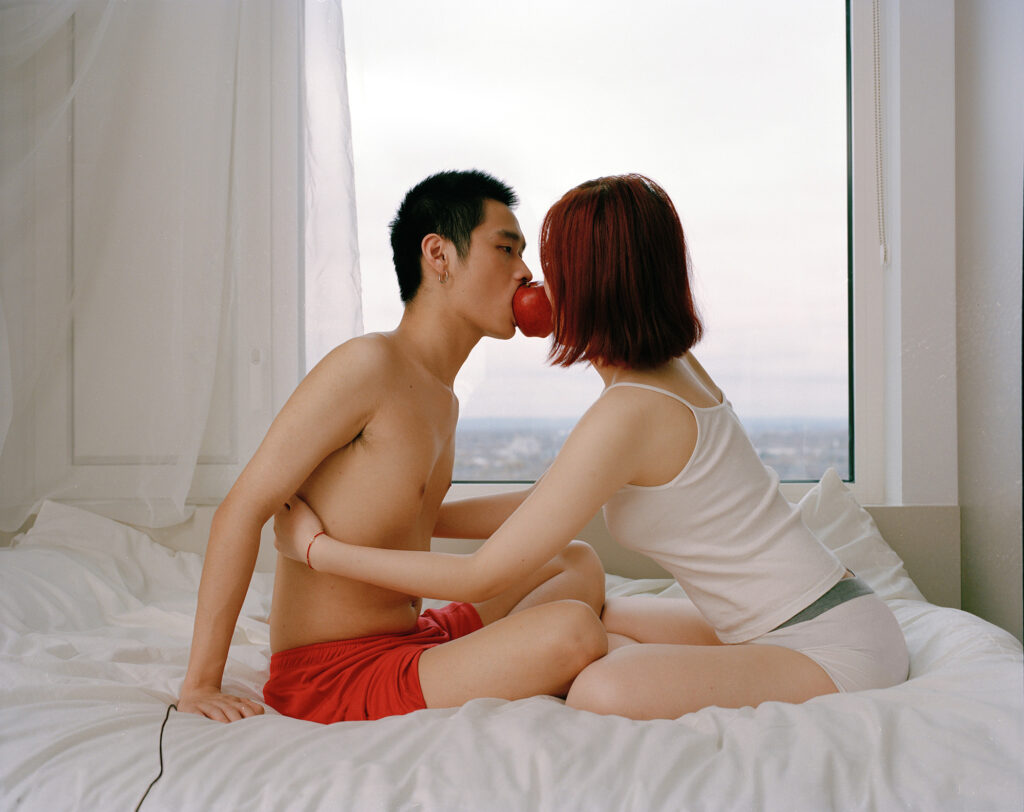
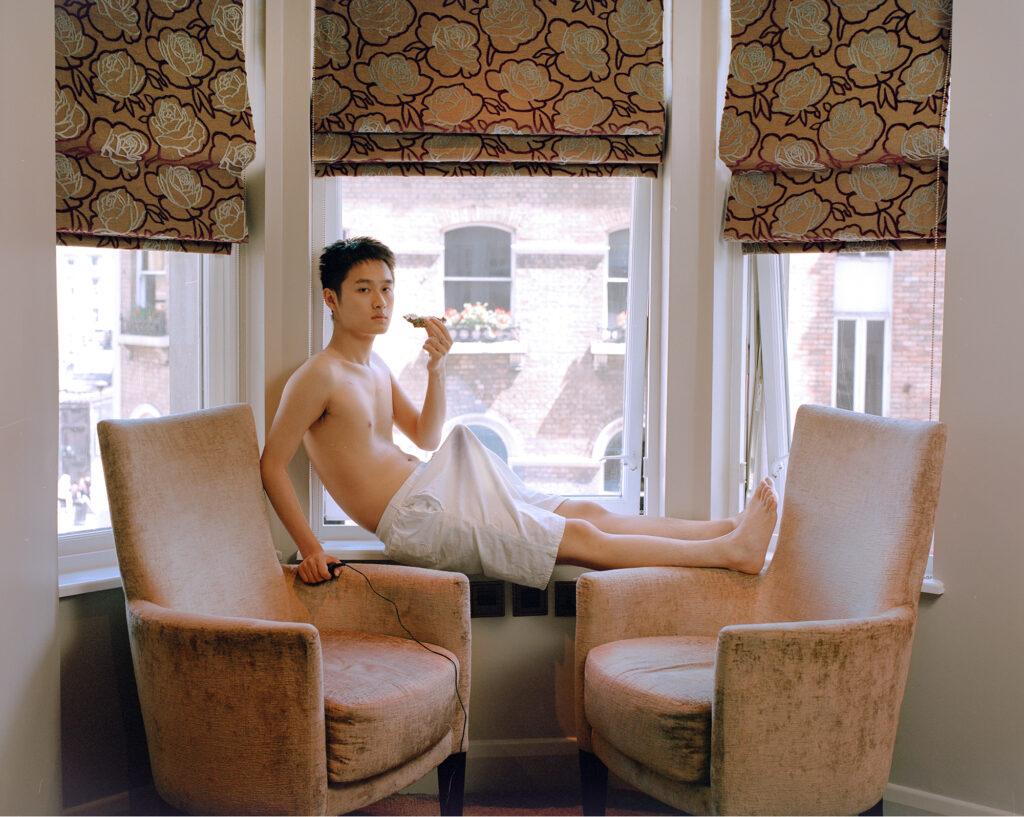
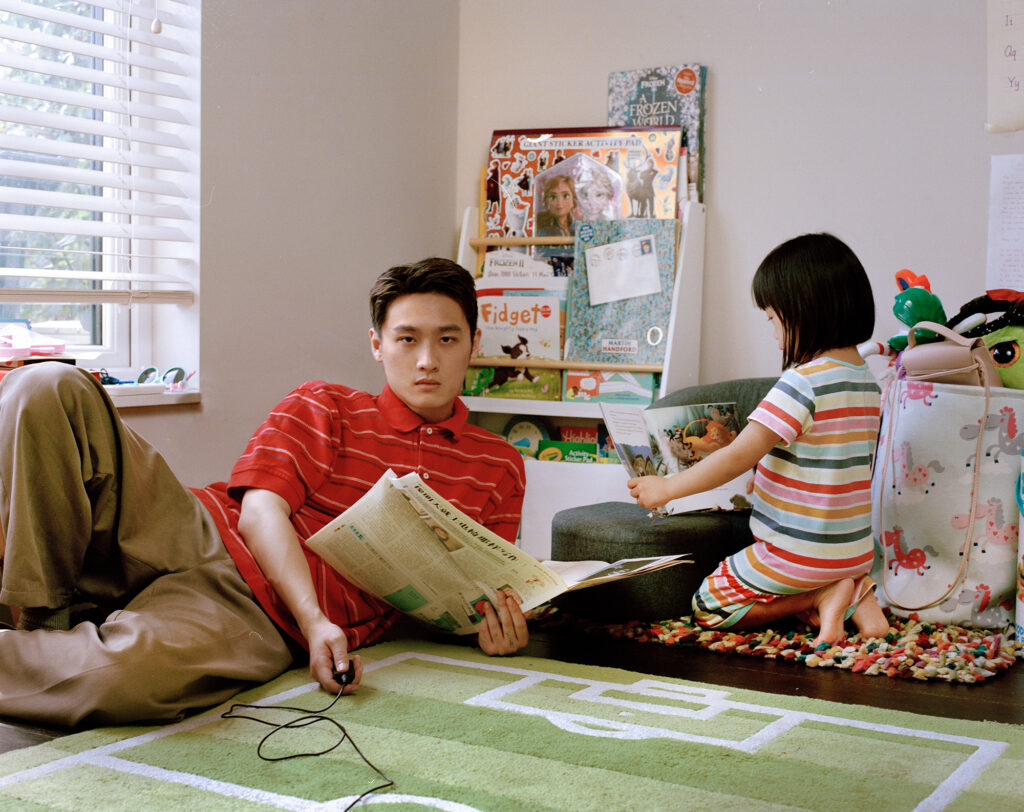

All photographs from the series Go Get ’Em Boy. Courtesy the artist
Ziyu Wang is a runner-up for the 2023 Aperture Portfolio Prize, an annual international competition to discover, exhibit, and publish new talents in photography and highlight artists whose work deserves greater recognition.

